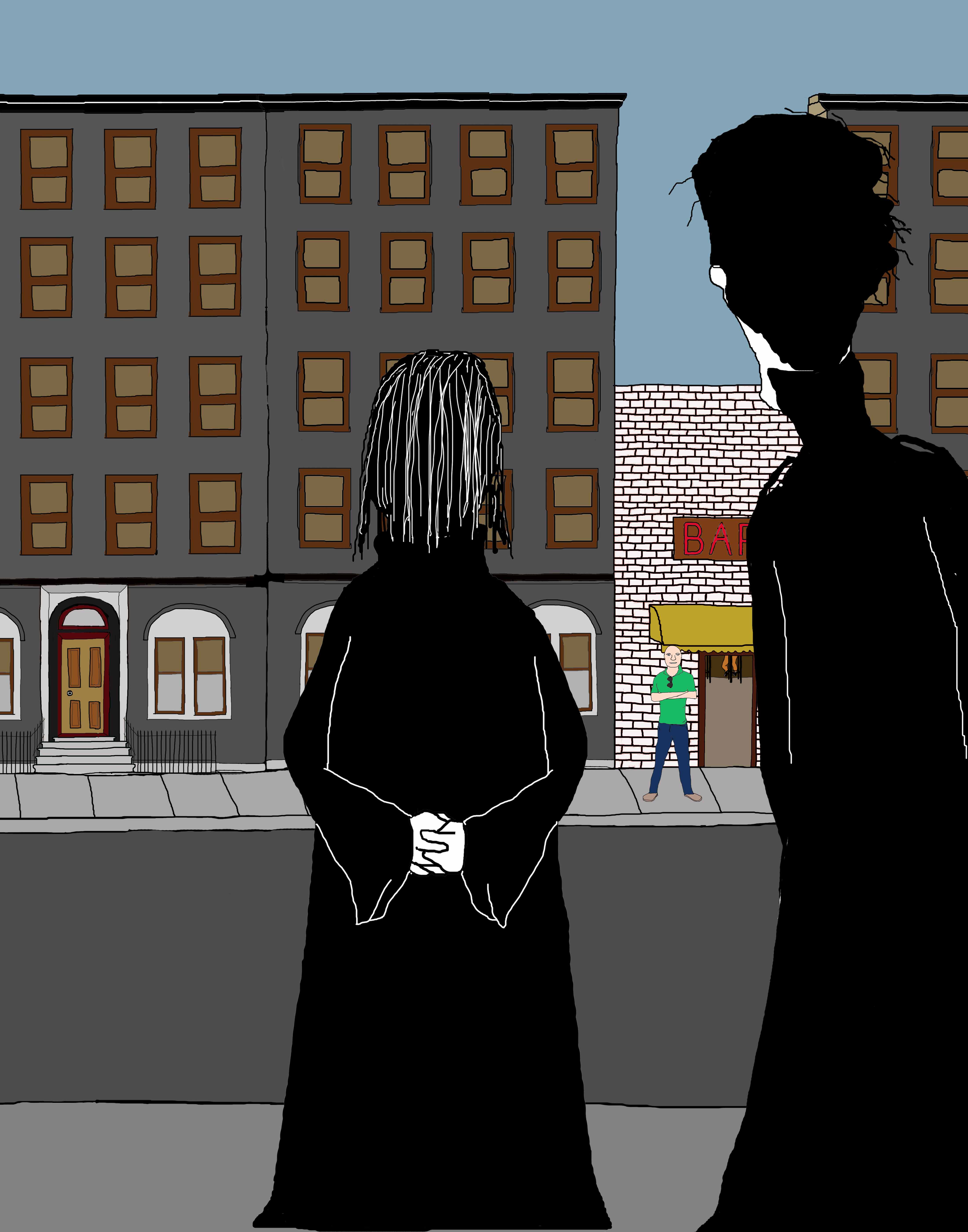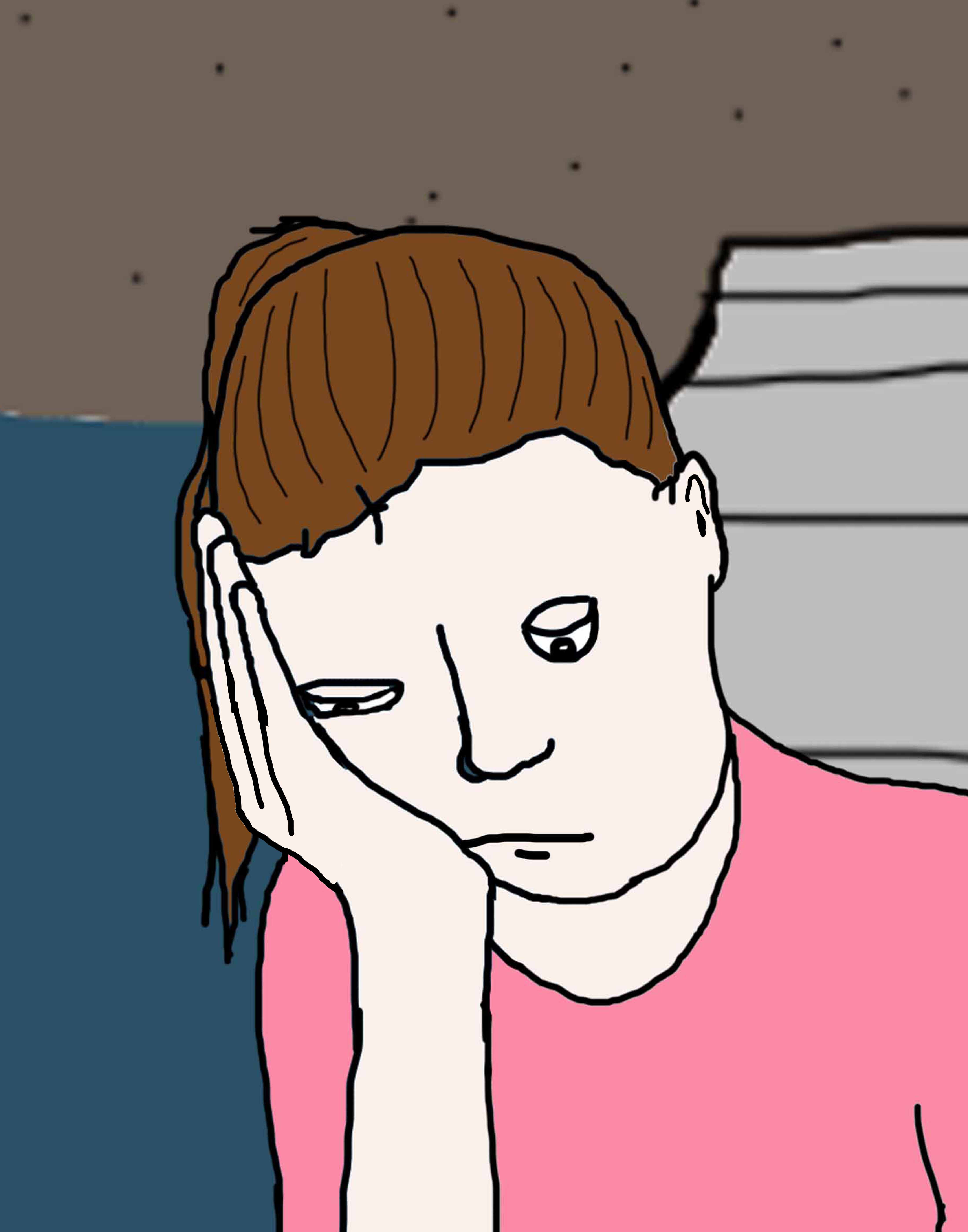Walking with Dog & Sylvia
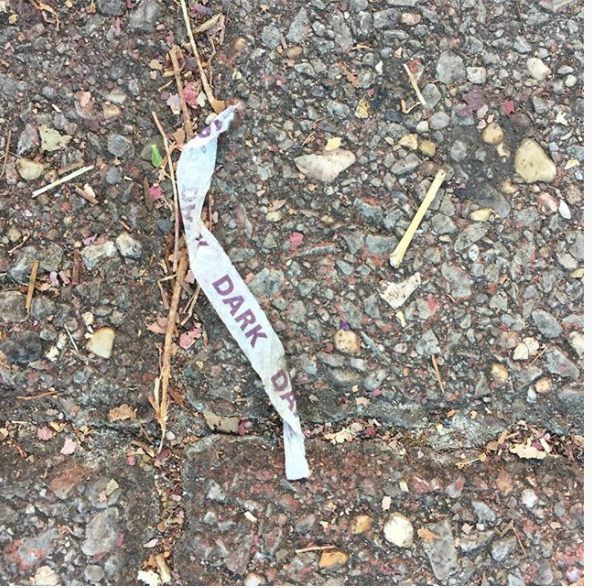
Nothing is more difficult than lashing a vagrant mind suddenly into long self-imposed stints of concentration.*
See the trees, the sidewalk, the trash can turned over, the Auburn flag, the dirty awning, the abandoned tricycle that will never not suggest something sinister. See the leaves, the dried ones on top and the molted ones beneath. See the neat ranch home, the Spanish colonial, the craftsman. Barking, birds, voices. Don’t think about what anything reminds me of. Don’t think about my childhood. Oh, my God–daffodils. Never not shocking with their yellowness, their alien mouths. Stop thinking about Sylvia Plath. Stop thinking about trying to write about her, the experience of re-reading her, the sex scene in THE BELL JAR that causes Esther to hemorrhage in a historical way, the rarest sex in the universe, the day-off-from-the-mental-hospital sex, the sex that punishes, the sex that touches death. How can the bleeding out not symbolize Plath herself, her genius, the violence she must have believed was embedded in her own ambition, in the very anatomy of female ambition.
So many cracks in the sidewalk, it would be impossible to play that game. Forgetting to remember and remembering to forget yield the same result: forgetting. A bird, another bird, so many birds. Too many birds today. How a certain number of birds signifies spring but one more than that number means something terrible is about to happen.
I want to live each day for itself like a string of colored beads, and not kill the present by cutting it up in cruel little snippets to fit some desperate architectural draft for a taj mahal in the future.
I am not an ‘in the moment’ person. The moment pains me with its borderlessness: how long will this last? When can I call it ‘over’? When can I call it the thing that came right before the real thing? When I was a child I sat in the church pew and was transmogrified by my longing for the service to be over. I mean I felt my blood blacken with disquietude, my limbs actually tingled. Sit still, my mother would say, but I would be sitting absolutely still. She could feel the friction in my mind, in my body, and it broke her concentration. Now, when I need to endure something I don’t want to endure, or when I need to wait for something, which I am still terrible at, and I can’t read or look at my phone, I try to pray, for something to do, and because that childhood pew was a crucible where my early ideas of God and suffering and forbearance and waiting got forged.
I’m newer to breathing as a form of coping. I used to become angry when people would talk about deep breathing. I like my breaths fast and shallow. Stop telling me to breathe, world. Stop telling me to slow down. Now I tell myself to breathe, to slow down. Mailbox, mailbox, crushed can, tire-flattened box of Eggos that must have escaped the recycling bin.
I catch up: each night, now, I must capture one taste, one touch, one vision from the ruck of the day’s garbage. How all this life would vanish, evaporate, if I didn’t clutch at it, cling to it, while I still remember some twinge or glory.
My dog–a phrase I never thought I’d say–sniffs everything. As though every day he sets out with one goal: to sniff every single thing. I pull him along, before remembering that I’m not supposed to be hurrying, I’m supposed to be pretending that time doesn’t exist, that all of these things around me are the miracles they’d be if I were a better person, or an animal. A chimney. A brick. So many bricks. I can’t fathom being tasked with building a house, or even just making a single brick. Trees, plants, grass–so much green and I only have the barest understanding of photosynthesis, of the very air I’m abusing. I have no practical skills, my God. Look at those bricks and meditate on the people who know what to do with them. Look at the litter without judging it. Stop judging the litter. The well-swept porch, the shabby car. This is not a cookie-cutter neighborhood. This is a real neighborhood. There is so much to see, if I could just stay with it, stay in the seeing, in the indexing, and out of the dictionary part, where meaning must be ascribed, or the memory part, where connections must be drawn. My dog eats garbage.
I keep believing that the world is loving because I am. I keep waiting for something to jump out of the bushes and harm me, but nothing harms me like I harm myself.
There is a certain clinical satisfaction in seeing just how bad things can get.
*All italicized portions are from The Unabridged Journals of Sylvia Plath, ed. Karen V. Kukil
plzplztalk2me: Mary Duffy

Hi there! I’m so glad to see you. Welcome to plzplztalk2me, a semi-regular feature in which I talk to folks who want to talk to me about stuff they want to talk about.
Recently, I talked with Mary Duffy. Duffy works as an editor of interactive fiction at Choice of Games LLC and is an editor at The Scofield. Her work has appeared on Literary Hub, Fusion.net, The Scofield, and Pacific Standard. She lives in Colorado where she is writing a book about the Jewish refugee crisis that preceded America’s entry into the war and her family. She tweets @maryfduffy.
TRUMP AND IMAGINARY SWEDES
1.
A couple of days ago, President Trump made headlines around the world when he suggested that there had been a terrorist attack in Sweden “last night.” This was a big surprise to many people, not the least people living in Sweden, since none of them had heard of an attack. As most of you now know, it was soon established that there had not been a terrorist attack, and that the US president had lied.
Many Swedish and international newspapers joined in to debunk Trump’s claim, and the Swedish government asked the US government for an official explanation. The only answer Trump seemed capable of offering was that he had been inspired by a recent story on “Tucker Carlson’s” show on Fox News. The show had interviewed a propagandist film-maker, Ami Horowitz, was in turn proven to have not only peddled falsehoods but to have cut-and-pasted interviews with Swedish police officers in such a way that it seemed that they were talking about immigrants when they in fact were not.
In response to continued pressure, Trump has insisted that things are really terrible in Sweden and that the news is trying to cover up the real truth about how horrible Sweden is.
It’s true that Sweden has let in a lot of immigrants over the past three decades. And it’s true that it’s often been hard for a country that previously had very few immigrants to deal with this influx, and that right-wing politicians have successfully riled up a lot of xenophobia. But the claims that Sweden has become crime-riddled war zone are incredibly, incredibly exaggerated. Stockholm is not “the rape capital of Europe” no matter how fanciful that claim strikes right-wingers. The increase of refugees has not led to a substantial increase in crime. There’s zero evidence to back up these claims.
Still, Trump won’t go back on his charges. Instead he’s doubled down, claiming to know Sweden better than Swedish scholars and journalists. Why? READ MORE >
Starving the Left’s Political Imagination
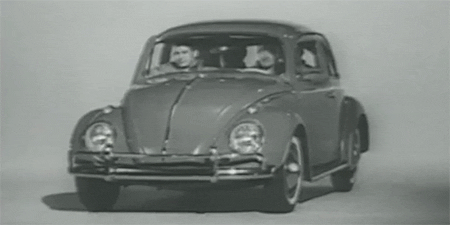
In the USA, the political left survives not on the wages of raw fear and liquid capital but on a pleasant wealth of public imagination that must be constantly updated to reflect changing political and economic circumstances. It is a mild sort of collective futurism with very murky outlines that propels everything from political art to individual vocation to government legislation.
plzplztalk2me: Andrea Lambert

Oh, hello there. Welcome back to plzplztalk2me, a semi-regular feature in which I talk to folks who want to talk to me about stuff they want to talk about.
Recently, I corresponded with Andrea Lambert. Lambert wrote Jet Set Desolate (Future Fiction London: 2009), Lorazepam & the Valley of Skin: Extrapolations on Los Angeles (valeveil: 2009) and the chapbook G(u)ilt (Lost Angelene, 2011). Her writing appears in 3:AM Magazine, Fanzine, Entropy, Angel’s Flight Literary West, HTMLGiant, Queer Mental Health and elsewhere. Her work is anthologized in Haunting Muses, Writing the Walls Down: A Convergence of LGBTQ Voices, The L.A. Telephone Book Vol. 1, 2011-2012, Off the Rocks Volume #16: An Anthology of GLBT Writing and elsewhere. Lambert paints in figurative mixed media oils critically referenced as “kitchy maximalism.” Her artwork features in Angel’s Flight Literary West, Entropy, Hinchas de Poesias, Queer Mental Health and Anodyne Magazine. CalArts MFA. Website: andreaklambert.com. Twitter: @AndreaLamber.
“the limitless violence of beauty”: On Raúl Zurita
In the comment to my last post, “Deadgod” raised some good issues about “canons” and canonical thinking. When I disparage canonical thinking, I am disparaging the kind of stable lists and established readings that aims to contain poetry’s volatility. But I’m not opposed to people having favorite poets, or even of people promoting certain poets as great.
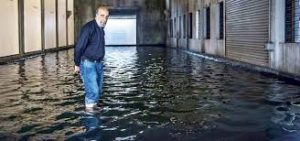
In his blurb to Anna Deeny Morales’s new selection of Raúl Zurita’s work, Sky Below: Selected Works, Forrest Gander writes: “There isn’t a more important contemporary writer than Raúl Zurita.”
I think this statement could be more than a blurb, I think it can model a very insightful mental exercise: Instead of assuming that a US poet – Ashbery, Bishop etc – is “the most important post-war poet” (as tends to be the assumption in US discussions about poetry), imagine an alternative reality (not all that alternative, if you happen to live not in the US but in Chile or any other part of the Spanish-speaking world) that Raúl Zurita is the most important contemporary poet.
How would that change all kinds of assumptions about poetry?
For example, in Zurita’s work lyrical poetry and politics are not opposed, as in so much US thinking about poetry. The lyrical is political; the lyric also has the capacity to embrace the public, the visionary, dreams, the abject; the lyrical can be excessive and overwhelming, not a call to be moderate/”incremental” and “write what you know”; the avant-garde is not to be obscure or elite, but to be dramatically populist (as it was for example for the Dadaist poster-makers in Germany, 1930s). I think especially in times such as this, Zurita’s fierce work – embracing performance work as well as lyrics – is a great source of inspiration for me.
From an interview with Prairie Schooner:
“All that I came to do in those years, like the art actions with the CADA, was because I felt that pain and death should be responded to with a poetry and an art that was as vast and strong as the violence that was exercised over us. To place in opposition the limitless violence of crime and the limitless violence of beauty, the extreme violence of power and the extreme violence of art, the violence of terror and the even stronger violence of all our poems. I never knew how to throw stones, but that was not our intifada. You can’t defeat a dictatorship with poetry, but without poetry, and this is no metaphor, humanity disappears, literally, in the next five minutes.”
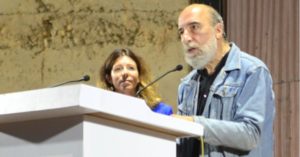
However, I think calling attention to the greatness of Zurita is only good if we do away with the common treatment whereby foreign writers are “allowed” to write about political calamity but that conditions are different for US poets (as in many discussions about “the poetry of witness” etc). Or that Zurita stands for a kind of separate, quarantined, foreign canonicity. That’s stabilizing canonicity.
No, I think we should insist – with Gander – that Zurita is someone for US poets to take to heart as much as they take to heart US poets, or even more than they take to heart US poets. This is one of the threats and promises of translation’s “transgressive circulation”: that a foreign poet can be “canonical” and utterly challenge our assumptions about poetry.
In an increasingly untenable situation in this country, I am inspired by Zurita’s call for a poetry that is “as vast and strong” as the forces of injustice, a call for an “extreme” poetry that invokes and engages with “the limitless violence of beauty.”

